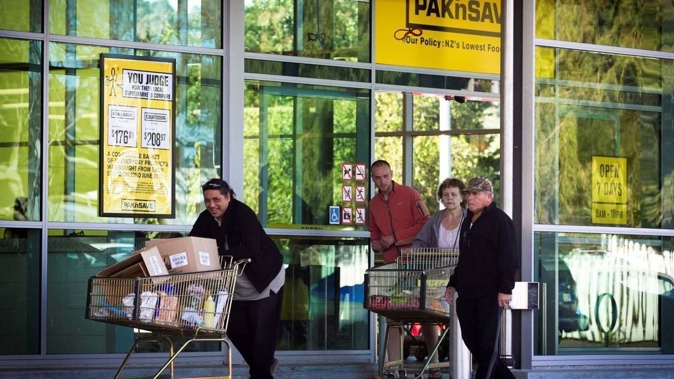
The Privacy Commissioner has concerns about Foodstuffs North Island facial recognition trials that are rolled out across 25 supermarkets across the North Island today.
The supermarket conglomerate hopes the six-month trial will combat the 4719 separate criminal offences during the last three months of last year.
“This trial of FR in our stores is part of our commitment to keeping our teams and customers safe,” Foodstuffs North Island chief executive Chris Quin said.
Privacy Commissioner Michael Webster said all New Zealanders should care about biometric technologies, such as FRT, because it’s a significant step in this technology becoming more commonplace and it has privacy implications.
“The concern is that FRT isn’t a proven tool in efforts to reduce harmful behaviour in supermarkets, especially violent harmful behaviour.
“New Zealanders deserve to shop for their milk and bread without having their faces scanned unless it’s really justified,” Webster said.
“We wouldn’t accept being fingerprinted and checked at the door before shopping for groceries - that sounds ludicrous - but FRT is a similar biometric process that is faster, machine-run happens in a nanosecond and creates a template to compare your face too, now and in the future.”
/cloudfront-ap-southeast-2.images.arcpublishing.com/nzme/TYD6CSGLNBFLDBI4M3GAB6VRWU.jpg) Retail crime, such as this alleged bashing of a security guard by two shoplifters, is a big concern to a union representing supermarket staff. Photo / Foodstuffs
Retail crime, such as this alleged bashing of a security guard by two shoplifters, is a big concern to a union representing supermarket staff. Photo / Foodstuffs
He said they want people to be safe as they shop and work, but has questions about whether the technology will be effective.
“It’s also not an FRT-or-nothing situation. There are other options in place to deal with retail crime and therefore Foodstuffs North Island needs to find hard data that works and is necessary.”
Foodstuffs North Island general counsel Julian Benefield said they have been careful about ensuring this trial gets the balance right between providing a safe environment for our people and customers and being respectful of everyone’s privacy.
“The FR systems will be subject to strict access controls, with only authorised and specially trained store team members, who are required to keep the information confidential, having access.
“Each store has robust data protection safeguards in place. Images that do not match the store’s record of previous offenders and accomplices will be instantly deleted. Only images of previous offenders and their accomplices will be kept in the store’s FR system for longer - offenders for up to two years and their accomplices for three months.”
Webster said he is concerned by potential accuracy and bias within the trials.
“Global evaluations of even the most accurate FRT software show that false matches are more likely to happen for people of colour, particularly women of colour,” he said.
“I am particularly worried about what this means for Māori, Pasifika, Indian, and Asian shoppers especially as the software is not trained on New Zealand’s population.
“I don’t want to see people incorrectly banned from their local supermarket and falsely accused.”
He also said, that while Foodstuffs has engaged with the Office of the Privacy Commissioner, it doesn’t mean the office has endorsed the use.
“I will be looking for evidence after the six-month trial that the use of FRT has made a practical and statistically significant difference to the incidence of retail crime in Foodstuff North Island supermarkets relative to other less privacy intrusive options.
“It’s my job to protect New Zealanders’ privacy and we need to make sure, in instances like this FRT trial, that New Zealanders can trust that where their personal information is being used is necessary to the job at hand, and that the privacy risks associated with it are managed.”
Take your Radio, Podcasts and Music with you









